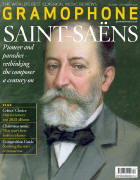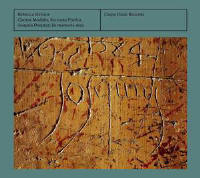Texte paru dans: / Appeared in: |
|
|
Outil de traduction (Très approximatif) |
|
|
Reviewer: Fabrice Fitch If you’ve ever caught yourself regretting the uniformity of performance approaches to Renaissance vocal music, this disc may be for you. Rebecca Stewart has been an idiosyncratic voice in the field for many years (not least as erstwhile director of Cappella Pratensis), championing alternative approaches to tempo and vocal production. Here she works her peculiar magic on Josquin (well … more on that later). The default dynamic is soft, though waxing and waning constantly, sometimes on the same note. Her singers, particularly Cappella Pratensis, have sounded more astringent in the past (another Stewart trademark), but here they hit a sweet spot that tickles the ear without becoming grating – with the exception of the Benedictus of the Mass, where the tuning comes seriously unstuck. Because it’s so often done, Nymphes des bois is a good test case, and they turn in a very affecting performance. I have a soft spot for the Absolve quaesumus, Domine ascribed to Josquin, but the anonymous setting recorded here (reconstructed by Stewart and Joep van Buchem) is a real discovery, audibly modelled on the older piece. The Missa Mater patris, one of the strangest works of its time, seems ideally suited to Stewart’s purposes. Tempos are very relaxed, brooding almost, each text phrase carefully and sensitively shaped (reminiscent of Concerto Italiano’s approach to madrigals), lingering deliciously on the weird parallel chords that are one of the work’s hallmarks: the Credo is full of them. Some will find the details of musica ficta perplexing or worse, but this adds to the slightly trippy vibe. I must mention Stewart’s introduction of the soprano at key points throughout: these changes of scoring completely transform the colour – another touch that runs counter to current performance practice but which comes across as a masterstroke. In short, this is entirely different from any other recording of the Mass – or anything else I’ve heard in this Josquin year. Speaking of which, it has to be said that Josquin’s authorship of the Missa Mater patris in particular is far from certain, and that the programme’s conceit (namely, of pieces written by Josquin in memory of other composers – and, coming full circle, a piece written in his own memory, perhaps by Willaert) is largely speculative. That’s even truer of the booklet notes, written by Josquin himself, with Stewart and van Buchem as media. How much time you have for this sort of thing is up to you, and no doubt the same goes for the interpretations; but at its best, there really is something magical here. |
|




